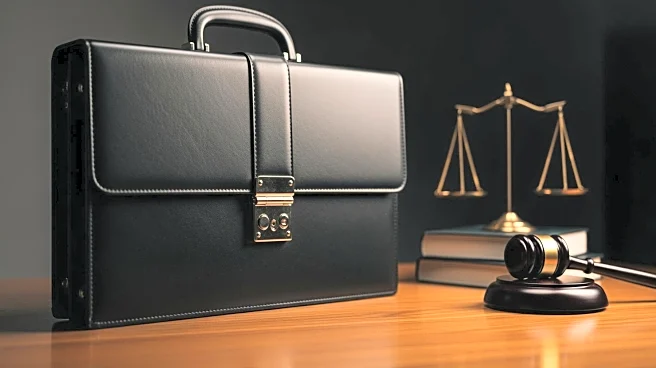What's Happening?
Attorneys representing former special counsel Jack Smith have sent a letter to Senate Judiciary Chairman Chuck Grassley, disputing claims that Smith wiretapped or spied on Republican lawmakers during his
investigation into President Trump's efforts to overturn the 2020 election. The letter aims to correct inaccurate assertions regarding the issuance of a grand jury subpoena for phone records of several lawmakers. Smith's attorneys emphasize that his actions were consistent with legal standards and not politically motivated.
Why It's Important?
The dispute over the wiretapping claims highlights the ongoing controversy surrounding the Arctic Frost probe and its implications for political dynamics in the U.S. The situation underscores the challenges in maintaining impartiality in legal processes amid political pressures. The attorneys' response may influence public perception of the Justice Department and impact future legislative and judicial actions. The case raises questions about the balance between national security investigations and political targeting, with potential implications for civil liberties and privacy rights.
What's Next?
The letter from Smith's attorneys may lead to further scrutiny of the Arctic Frost probe and its conduct, potentially resulting in congressional hearings or investigations. Republican lawmakers are likely to push for accountability and transparency, potentially leading to legislative changes or reforms in how such investigations are conducted. The situation may also affect upcoming elections, as parties leverage the issue to rally support. The Justice Department may need to address public concerns about impartiality and transparency in its investigations.
Beyond the Headlines
The dispute over wiretapping claims raises ethical questions about the use of surveillance in political investigations. It underscores the challenges in balancing national security needs with the protection of individual rights. The situation may prompt discussions on the limits of government surveillance and the protection of civil liberties. Long-term, this case could influence how future administrations approach similar investigations, potentially leading to policy shifts in the Justice Department.










